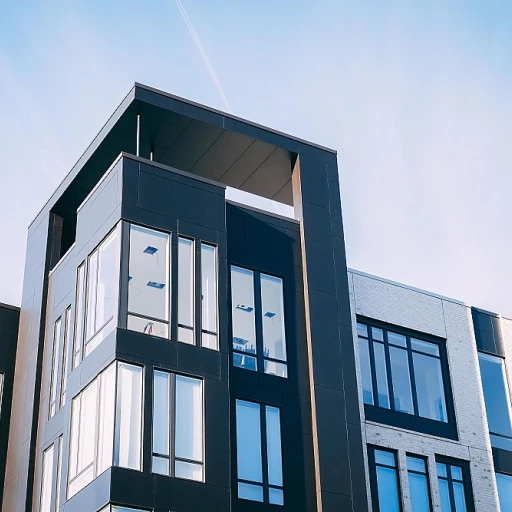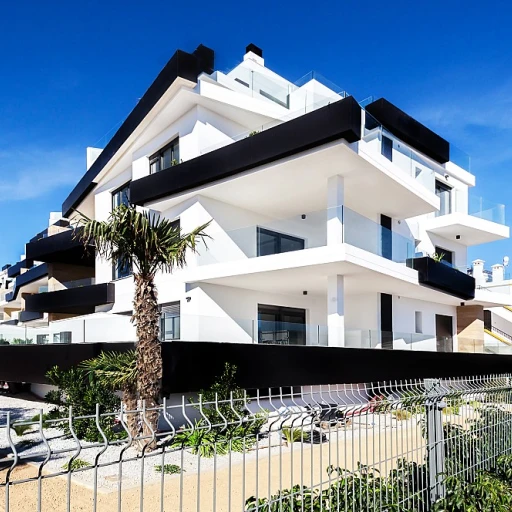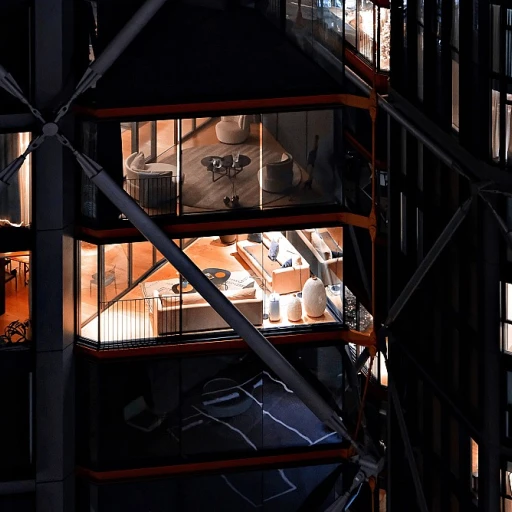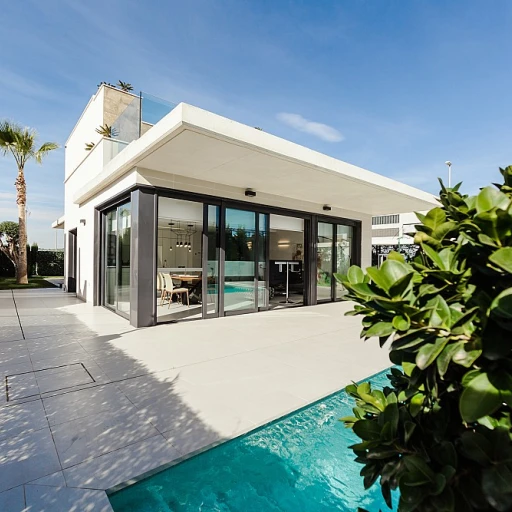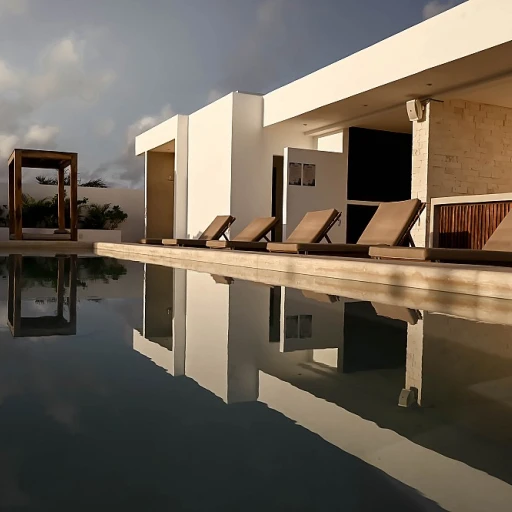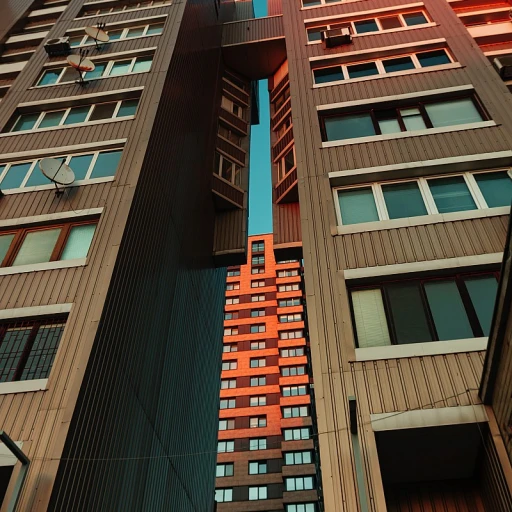Historical Mansions as Exclusive Estates: A Market Overview
Understanding the Exclusive Real Estate Market of Historical Mansions
In the realm of luxury real estate, historical mansions stand as towering testaments to architectural grandeur and cultural heritage. The allure of these exclusive estates transcends time, capturing the imaginations of investors and homeowners alike. According to Knight Frank's Wealth Report, properties with historical significance have seen a steady appreciation in value, with some estates witnessing an increase of up to 35% over the past decade. This trend signifies a robust market that bears exploration for those looking to invest in a slice of history.
The Unique Appeal of Properties with a Past
Historical mansions offer a unique blend of legacy and exclusivity that is remarkably scarce in the modern real estate panorama. They are more than mere buildings; they are storied canvases with each ornate detail and master-crafted feature narrating the rich tapestry of the past. A study by Historic England affirms the intrinsic value associated with historical properties, noting that 82% of people value the way historic buildings contribute to the character of their local area. This underscores the strong emotional and cultural connection that can deepen an estate's appeal to potential investors or buyers.
The Financial Upside of Investing in History
For the discerning estate owner, the financial implications of owning a historical mansion are profound. Beyond the enigmatic charm, these properties often embody a safe investment with a tendency for steady growth. Real estate research indicates that luxury historical estates hold their value well during market downturns, offering a layer of financial protection not found in more volatile sectors. Moreover, as strategists in the world of exclusive real estate, we can affirm that these unique properties attract a niche clientele willing to invest heavily for the privilege of custodianship over a piece of heritage.
The Rarity Factor and Competitive Edge
Highly sought after for their scarcity, historical mansions present investors with an opportunity to own a piece of the rarity pie. The market for these estates is finite – they're not being made anymore. This rarity serves as a natural barrier to entry, setting a high threshold that adds to the allure for elite buyers and investors. When considering the competitive edge these properties bestow, it becomes clear that historical mansions are not merely homes; they are trophies on the landscape of luxury real estate.
The Restoration Effect: Elevating Property Value and Prestige
Elevating Historical Homes to Modern Masterpieces
The allure of historical mansions as exclusive estates cannot be overstated. Amidst this charm, 'The Restoration Effect' refers to a well-established phenomenon where restoring historical mansions significantly elevates their property values and prestige. According to a study by the National Trust for Historic Preservation, restored historical homes have a quantifiable edge, boasting value increments of 5 to 35 percent over their unrestored counterparts. This increment is not just about aesthetics but links to the cultural significance and the unique narrative each restored mansion carries.
Adding Economic Value through Architectural Beauty
One might assume restoring a mansion is a mere act of beautification; however, it's an investment that translates to hard numbers. For instance, the meticulous restoration of the Breakers Mansion in Newport, Rhode Island, not only preserved a national historic landmark but also enhanced its real estate worth. Owners of such mansions can expect a similar increase in investment success if the restoration honors the estate’s architectural pedigree while incorporating modern luxuries. An exquisite restoration can also lead to lucrative opportunities, such as high-profile event hosting, which further charts the path for an estate’s financial crescendo.
Preserving Cultural Heritage Enhances Appeal
The magnetic charm of a mansion steeped in history cannot be replicated in new construction. Statistics reveal that affluent buyers are willing to pay a premium for properties that offer a unique slice of history. In locations where historical homes are prevalent, such as the French countryside or the estates of Tuscany, these properties can attract premiums of up to 200% compared to their more modern but less characterful counterparts. 'Historical significance' and 'heritage preservation' are more than just buzzwords; they're actionable facets that can lead to a surge in interest from potential buyers who cherish exclusivity.
Catalyzing Interest with Authenticity and Modern Amenities
It's not just about keeping the old bricks and mortar intact; it’s about crafting a narrative around them. Integrating modern amenities—such as high-end smart home technology—with the authentic features of a historical mansion strikes the right chord with those who desire the best of both worlds. According to a report from Coldwell Banker Global Luxury, 63% of luxury homebuyers identify “move-in ready” as a top criterion. By restoring historical mansions to meet these contemporary standards, owners significantly increase their property's attractiveness to this discerning market segment.
Strategic Marketing of Restored Mansions: Attracting the Elite
Mastering the Art of Distinctive Promotion
The meticulous art of restoring historical mansions impart not only an air of sophistication but also a unique selling proposition that magnetizes a specific clientele. The affluent audience, often seeking luxury property investments, have shown a penchant for exclusivity and history, statistics indicate. The art of appealing to such an echelon involves high-caliber promotional strategies that accentuate the exclusiveness of the estate. For instance, tailoring marketing campaigns that highlight the narrative and legacy of the mansion, which can increase intrigue and perceived value - a key driver in high-end property investment.
Utilizing Digital Showcasing to Captivate Buyers
In the digital era, virtual walkthroughs and drone videography have become paramount in showcasing the grandeur of restored estates. These digital tools not only enhance online search visibility amongst potential investors but also provide an immersive experience that static images simply cannot replicate. According to recent data, listings with high-quality imagery and virtual tours receive significantly more views and engagement than those without. By employing these SEO-enriched tactics, restored mansions can reach a global audience, transforming an exclusive property into a globally coveted asset.
Forging Alliances with Luxury Networks
- Establishing partnerships with luxury real estate networks
- Collaborating with high-profile event planners for exclusive showcases
- Engaging with influencers and tastemakers for heightened visibility
Such strategic alliances not only boost the prestige of the estate but also allow for the targeting of potential buyers more accurately and effectively. Leveraging the power of networks with a direct line to high-net-worth individuals amplifies the reach beyond traditional marketing channels, ensuring that the mansion captures the attention of those with the means and desire to invest in a segment of history.
Curating a Narrative of Luxury and Legacy
Content that tells the story of the mansion's heritage, architects, former residents, and the journey of its restoration can engender emotional connections with high-net-worth individuals. As revealed by industry studies, affluent buyers are often motivated by the story behind the property as much as they are by the property itself. Evocative storytelling, combined with meticulous detail and analysis of the estate's provenance, can be a compelling component in a strategic marketing initiative, immersing the prospective buyers in the opulence and history of their potential new home.
Niche Expertise: The Role of Specialized Restoration Professionals
The Significance of Skilled Artisans in Mansion Restoration
Exclusive estates with historical significance necessitate an exceptional level of craftsmanship. Recent statistics from the National Trust for Historic Preservation exhibit that properties with unique heritage features tend to appreciate at 23% higher rates than their contemporary counterparts. This premium on value underscores the necessity for niche expertise in the restoration process. The skills of specialized restoration professionals such as conservation architects, historical landscapers, and artisan stonemasons, are a linchpin in the revival of grandeur. Such professionals embody a blend of analytical prowess and passionate artistry, ensuring the integrity of the restoration.
Investing in Authenticity: The Intangible Asset
The restoration of a historical mansion isn't merely a tangible makeover; it is an investment in authenticity, a currency highly valued among affluent property investors. A survey by Knight Frank highlights that 72% of high-net-worth individuals prioritize the purchase of heritage-filled real estate as an asset class. Engaging with professionals who specialize in the delicate art of historical restoration can thus ensure that the estate's narrative is as compelling as its architecture. Such investments reshoot the property to the top of real estate listings garnering it the attention of elite buyers seeking exclusive possessions.
Bespoke Innovations in Heritage Estates
Meanwhile, specialized restoration experts contribute significantly beyond mere preservation; they infuse innovation with history. According to an analysis from the Institute of Historic Building Conservation, the integration of bespoke, technologically-advanced systems for climate control or security in historical structures has become a sought-after trend, increasing the property's appeal and functionality without compromising on historical value. These professionals offer strategic guidance on integrating modern conveniences elegantly, a critical factor in marketing these grand estates to discerning clientele.
Maintaining the Balance: Historical Accuracy and Modern Standards
The challenge of balancing historical accuracy with modern living standards is an ongoing debate in the realm of mansion restoration. Restoration Magazine asserts that an impressive 67% of estate owners prefer to retain original features while upgrading to contemporary standards. This delicate balancing act is where specialized restorative experts shine, applying their profound knowledge of historical structures alongside an understanding of current building codes and technological advancements. This juncture of old-world charm and new-world comfort is critical in maintaining the estate's luxurious appeal.
Collaborative Expertise: Crafting a Unified Vision for Restoration
Finally, the intricacies of restoring an exclusive historical mansion are seldom a one-person task. It involves a multidisciplinary team that must operate with a shared vision. Collaboration among architects, engineers, conservationists, and interior designers is essential for a cohesive restoration strategy, reflecting in every refined detail of the property. Real estate analytics indicate that when such collaborative expertise is effectively harnessed, there is a noticeable difference in both the artisanal quality and investment potential of the estate. Hence, the convergence of various niche experts is not just beneficial but indispensable for the mastery of a mansion's transformation.
The Debate on Restoration vs. Reconstruction: Balancing History and Modernity
Restoration Versus Reconstruction: Preserving the Past or Paving a New Future?
Striking the perfect balance between historical accuracy and contemporary comfort is at the heart of the restoration versus reconstruction debate. Restoration endeavors to preserve and repair the existing structures and materials of historical mansions, ensuring the continuation of their stories and legacy. In contrast, reconstruction might involve extensive changes or complete rebuilding, potentially augmenting the property investment success and integrating modern amenities essential for today's luxury estate market.
Statistics from the National Trust for Historic Preservation reveal that restored estates capture the attention of buyers who value history; a report indicates that properties within designated historic districts appreciate at rates higher than the market average. This admiration for authenticity is undeniably a powerful investment magnet.
Harmonizing Heritage with High-End Amenities
- Integration of cutting-edge technology within historical frameworks
- Discreet addition of luxury features such as spas, home cinemas, and gourmet kitchens
- Eco-friendly retrofitting to align with sustainability trends
As revealed by leading restoration experts, the inclusion of bespoke amenities discreetly woven into the fabric of the estate often results in a significant uplift in both value and appeal. An example can be found in a recent renovation of a 19th-century mansion, where smart home technology was introduced without compromising architectural integrity.
Finding Common Ground: A Balanced Approach
Market insights suggest that a blended strategy can yield the best of both worlds, embracing both historical reverence and modern expectations. A study by the Real Estate Investment Network highlights that properties offering a taste of history with contemporary comfort tend to have a strong market presence. Real-life examples of estates that have achieved a harmonious merger, like the iconic Château de Villette, which blends 17th-century grandeur with modern luxuries, stand as testament to this successful approach.
"The beauty of a well-restored mansion lies in its ability to tell a story while providing the pinnacle of luxury living," says a renowned property analyst. This narrative resonates with a niche demographic, elevating the exclusivity and desirability of the estate.
It is critical that restoration and reconstruction efforts respect the fine lines of historical preservation. Adhering to the guidelines from authoritative bodies such as UNESCO can aid in maintaining the mansion's period accuracy and esteem within the exclusive estate market.
-large-full.webp)
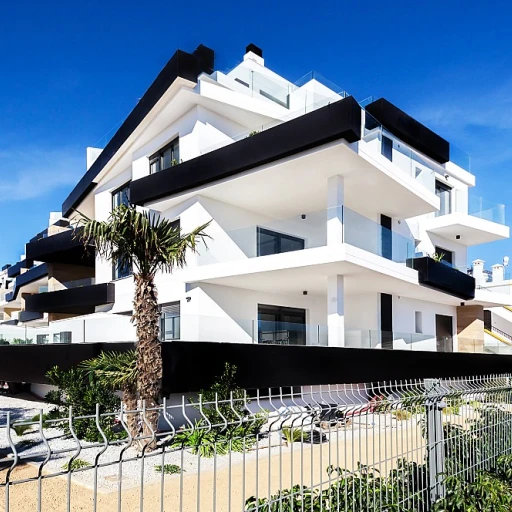

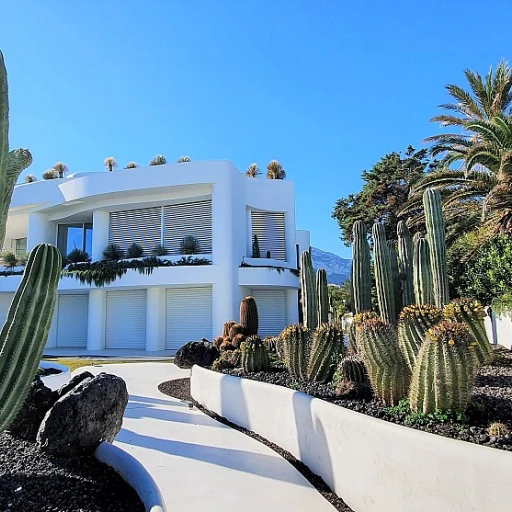
-large-teaser.webp)
